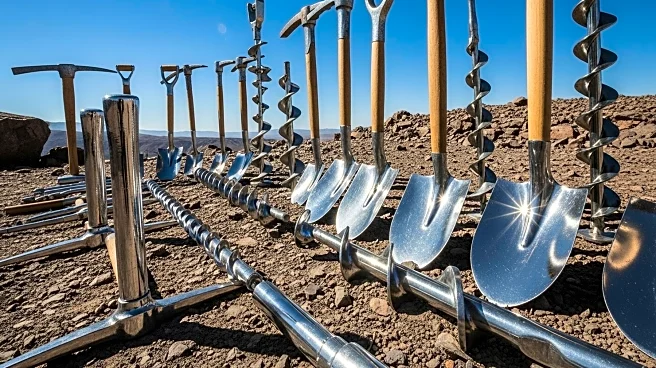What's Happening?
Peru's large mining companies are expressing concern over potential changes to mineral rights as congress discusses a proposed law favoring small-scale operators. The country, a major copper and gold producer, grants long-term concessions to mining giants like BHP Group and Glencore. However, the rise of illegal mining and production delays have prompted calls for shorter-term concessions to smaller operators. President Dina Boluarte mentioned possible changes to the concessions regime, sparking fears among large miners. The proposed bills aim to update the legal framework for small-scale miners, potentially revoking idle or underutilized concessions.
Why It's Important?
Changes to Peru's mineral rights could significantly impact the country's mining industry and economy. Large-scale mining operations rely on long-term concessions to plan and execute projects, and any reduction in concession periods could deter investment. The rise of illegal mining further complicates the situation, as it threatens legitimate operations and contributes to economic instability. The proposed changes could shift the balance of power in the mining sector, favoring smaller operators and potentially disrupting established practices.
What's Next?
The discussion around mineral rights is likely to continue into the upcoming presidential and legislative elections. Mining executives and industry stakeholders are closely monitoring the situation, as any changes could have far-reaching consequences. The Peruvian Institute of Economics has commissioned a study to highlight the importance of maintaining long-term concessions, emphasizing the challenges of bringing mines online in Peru. The outcome of these discussions will shape the future of Peru's mining industry.
Beyond the Headlines
The debate over mineral rights highlights broader issues of governance and regulation in Peru's mining sector. The push for shorter-term concessions reflects a desire to address illegal mining and production delays, but it also raises questions about the balance between large-scale and small-scale operations. The situation underscores the need for effective policy-making and collaboration among stakeholders to ensure sustainable development.











